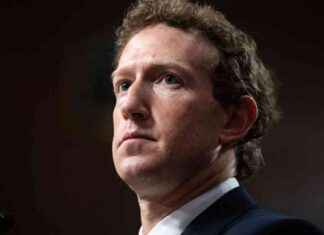Sign up for one of our email newsletters.
Updated 3 hours ago
Snap Inc., owner of the popular messaging app Snapchat, set a lower-than-expected valuation range, amid mounting investor concerns over its unproven business model, slowing growth and tight founder control.
The company, which filed for an initial public offering earlier this month, was widely expected to be valued between $20 billion and $25 billion. However, it said Thursday it was targeting a valuation between $19.5 billion and $22.3 billion, ahead of an investor roadshow due to start Monday in London.
The lower valuation reflected initial investor feedback, as well as Snap's aim to ensure there is sufficient demand for shares of the company that it trades up on its first day in public market.
Investors have been poring over the filing for Snap's upcoming IPO to assess whether the still-unprofitable company will be the next Facebook, which has figured out how to make money from its social media platform, or if it will be more like Twitter, which is struggling to achieve the same goal.
With platform-hopping millennials as its prime customer base and constantly evolving competition, the fact that Snapchat's new user growth has already begun to slow concerns investors, sources said, asking not to be named because the deliberations are confidential.
New active user growth was mostly flat in the early part of the last quarter in 2016, according to the IPO filing. Facebook's Instagram, which had 600 million users as of late 2016, has introduced its own form of disappearing video content. On average, Snapchat has 158 million daily users.
“Snap is already demonstrating decelerating growth before they have managed to break even,” said Yann Magnan, managing director at Duff & Phelps.
Unlike social media platforms such as Twitter and Facebook, Snapchat can be harder for new users to understand and easier for non-users to avoid, some investors said.
“With Facebook you almost feel left out, socially, if you're not on it. You may miss a picture or invitations. I don't get the sense people feel they're missing out if they're not on (Snapchat),” said Chris Carter, portfolio manager for the Buffalo Growth Fund who has not yet made a decision on whether to buy Snap shares.
Still, Snap proponents argue a more limited user base lends itself more loyalty and opportunity for the company to make money.
Snap, which is going public at a much earlier stage in its development than Twitter or Facebook, saw its loss widen to $514.64 million in 2016 from $372.89 million a year earlier. While not rare for a young company to be unprofitable, it is less common for an unprofitable company only five years old to ask for as whopping a valuation as Snap is aiming for.
With Snap's estimated valuation expected to be around 49 times revenue, and Facebook's being 27 times, the IPO aspirations “stress how much Snap's post-IPO growth must exceed Facebook's to compensate for its lack of short-term profitability,” said Magnan at Duff & Phelps.
Snap generates most of its revenue from advertising and will pay Google $2 billion over the next five years to use its cloud computing services.
Investors have also raised concerns overs Snap's first of its kind three-share class structure, which gives no voting rights to IPO investors. Snap co-founders Evan Spiegel and Bobby Murphy will have the right of 10 votes for every share, and existing investors will have one vote for each of their shares.
“Evan is going to have to earn Wall Street's trust. If he does that, the ownership issue goes away,” said Nabil Elsheshai, senior research analyst for Thrivent Financial in Minneapolis.
Our editors found this article on this site using Google and regenerated it for our readers.







